Course
The 23 Best Data Science Books to Read in 2024
Data science is one of the fastest growing fields today. Organizations worldwide are leveraging the power of data to support decision-making and deliver innovative experiences to their stakeholders. As the field continuously evolves, data science books are a great way for practitioners to sharpen their fundamentals and keep track of the latest techniques and methods.
In this article, we have prepared a comprehensive overview of the top data science books spanning programming, statistics, data visualization, and more. Let’s get started!
The Best Data Science Books for Beginners
Best Programming Books for Data Science
1. Data Science from Scratch: First Principles with Python by Joel Grus
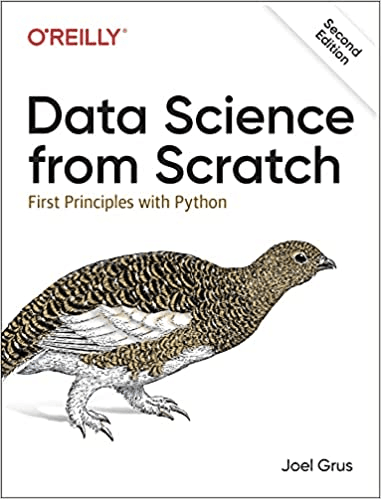
Data Science from Scratch is a perfect book for beginners. After the successful first edition of the book, Joel Grus introduced a revised edition that covers the basics of data science using the Python 3 programming language.
Centered around real data science problems, the book covers the most important concepts in the field by implementing solutions from scratch, using a gentle mix of statistics and coding.
Although you don't need to know how to use Python beforehand to get all the results you want from this book, having some knowledge of the language will make it easier for you to learn. We recommend checking out DataCamp’s Introduction to Python course for a primer on Python.
2. Python Data Science Handbook by Jake VanderPlas
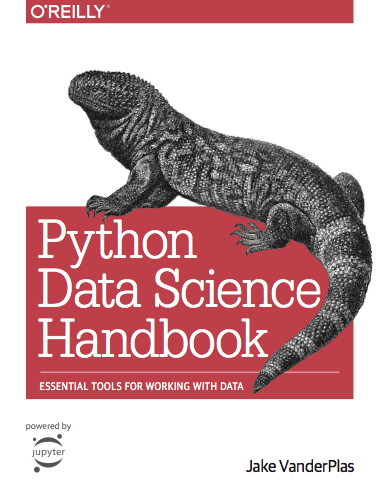
This comprehensive book written by Jake VanderPlas includes step-by-step guides for using the most popular tools and packages within the Python data science ecosystem. This includes Jupyter, iPython, NumPy, pandas, scikit-learn, matplotlib, and other libraries. You’ll learn through examples that you can easily reproduce.
Since its release in 2016, Python Data Science Handbook has rapidly become a reference for scientific computing in Python. The good news is that a revised edition is expected by the end of 2022. You can also hear Jake VanderPlas discuss the book, amongst other topics, on the DataFramed Podcast.
3. R for Data Science: Import, Tidy, Transform, Visualize, and Model Data by Garrett Grolemund and Hadley Wickham
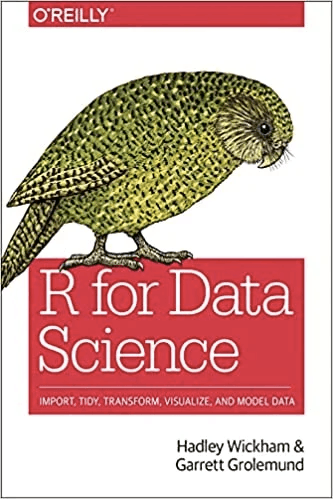
If you are an R programmer wanting to break into data science, this book is for you. Written by R’s stars Hadley Wickham and Garret Grolemnd, with R for Data Science, you’ll get the basics of this discipline through the use of the versatility R programming language and RStudio.
Rather than teaching hardcore statistics concepts from scratch, the book will focus on how to use R for data analysis so that you can get comfortable with popular packages, such as ggplot2, tidyr, and more. In sum, a must-read for any data scientist looking to sharpen their fundamentals in R.
Best Statistics Books for Data Science
4. Think Stats by Allen B. Downey
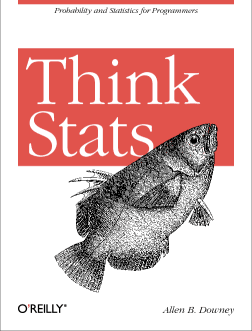
To turn data into insights, you need to know not only how to code but also how to apply different methods in probability and statistics. Learning statistics is a critical aspect of succeeding as a data scientist. Fortunately, this book demonstrates that learning statistics can be easy and fun.
Think Stats is an introduction to Probability and Statistics for Python programmers. By working with a single case study throughout the book, you will learn the different statistical methods that are used in the different steps of the data science workflow.
The book covers key concepts in statistics extensively, such as descriptive statistics, distributions, rules of probability, visualization, and many more. You can also check out Allen Downey’s book on DataCamp — Exploratory Analysis in Python.
5. An Introduction to Statistical Learning: With Applications in R by Gareth James, Daniela Witten, Trevor Hastie, and Robert Tibshirani
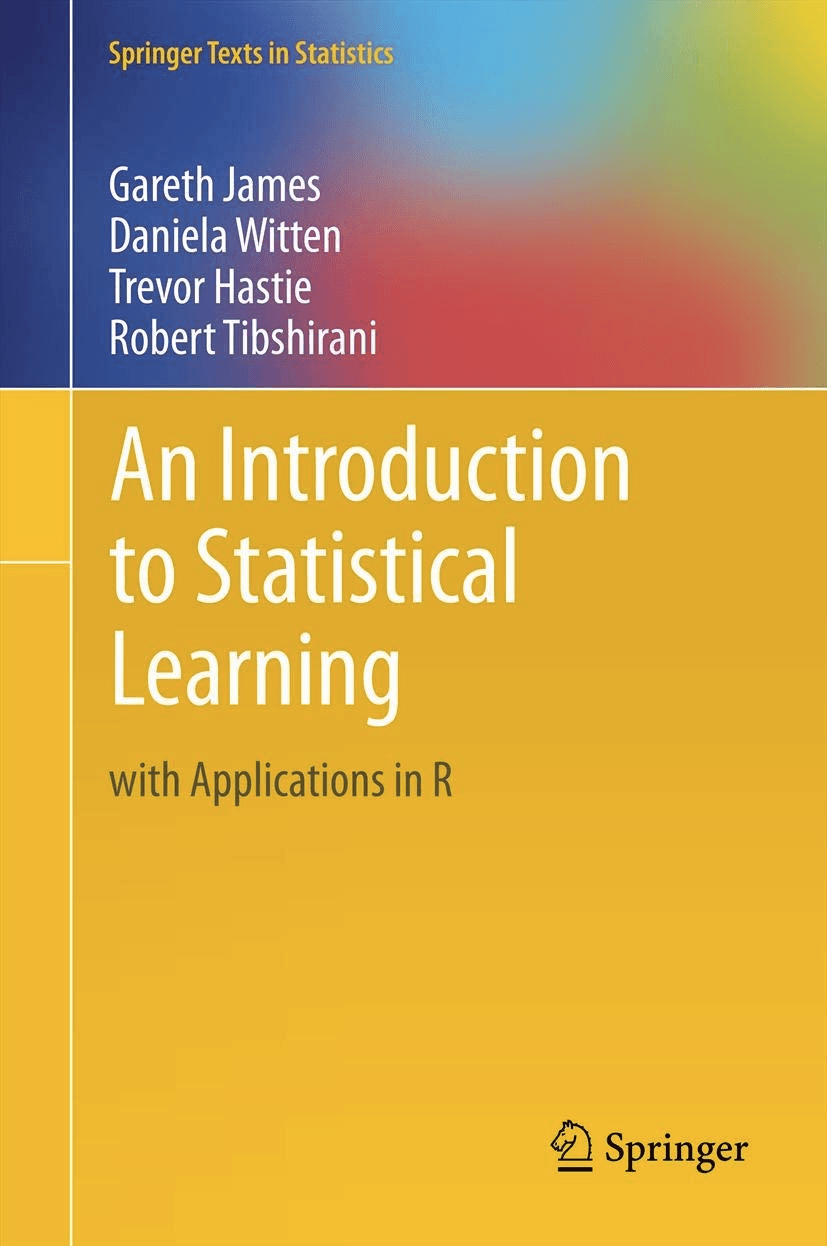
Aimed at statisticians and non-statisticians alike, An Introduction to Statistical Learning provides an accessible overview of the field of statistics for data analysis.
It includes an extensive and accessible treatment of some of the key topics in statistical learning, including linear regression, classification, resampling methods, contraction approaches, tree-based methods, support vector machines, clustering, and more. You can also check out the Statistics Fundamentals with R skill track to accompany your learning.
6. Practical Statistics for Data Scientists: 50+ Essential Concepts Using R and Python by Peter Bruce, Andrew Bruce, and Peter Gedeck
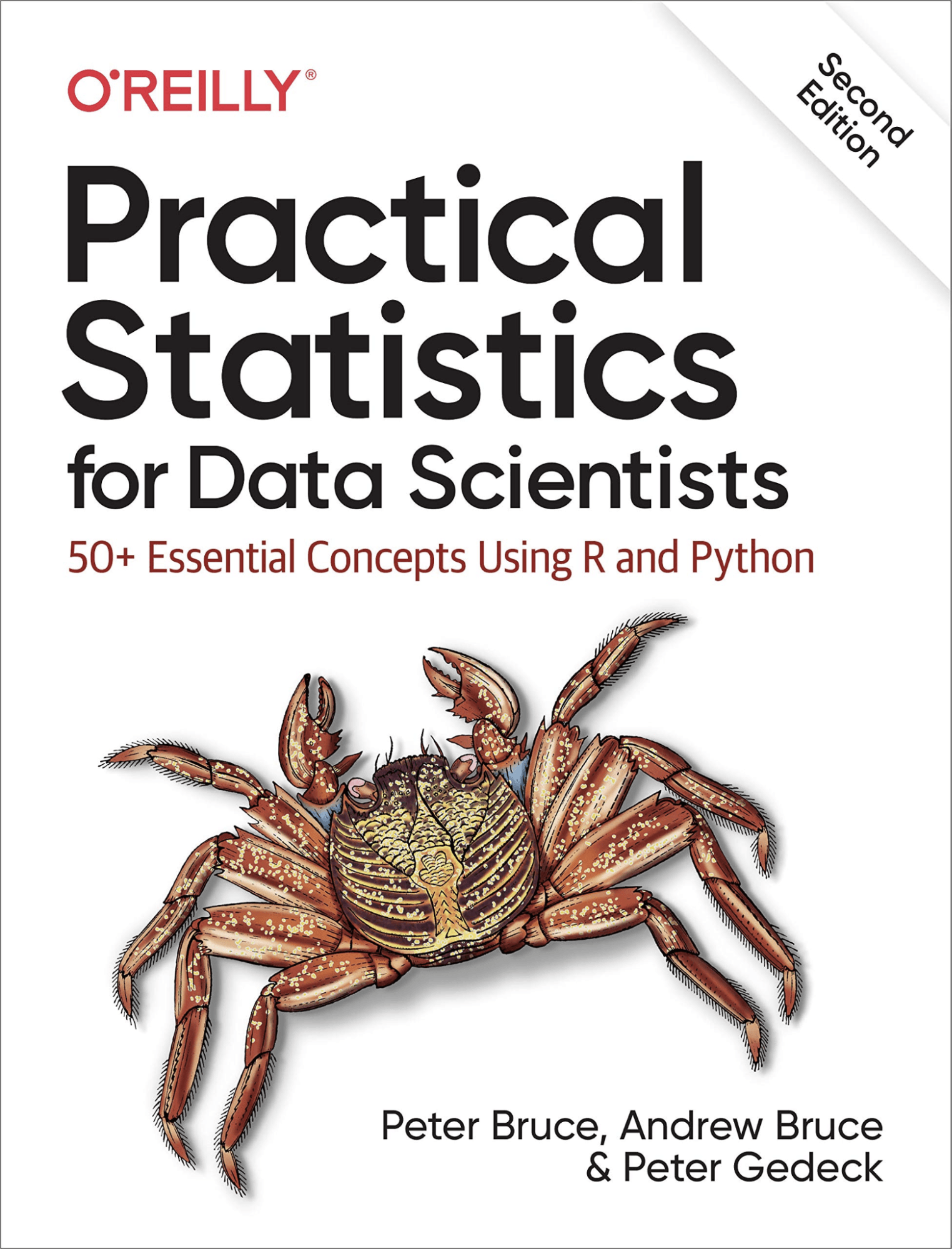
Statistics is a core part of data science. However, as the authors of the book say, many data scientists lack formal training in statistics. Practical Statistics for Data Scientists is a great resource to fill this gap.
This excellent book provides practical guidance on applying statistical methods in data science. It focuses on how to avoid the misuse of statistics in the data science workflow and provides tactical advice on the most widely-used statistical techniques to apply. The second edition adds new examples in both Python and R.
Best Machine Learning Books for Data Science
7. Introduction to Machine Learning with Python: A Guide for Data Scientists by Andreas C. Müller and Sarah Guido
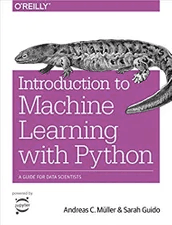
Machine learning is an integral part of the data science toolkit. If you are a Python programmer interested in learning machine learning, this book will provide you with all you need.
An Introduction to Machine Learning with Python is the ideal book to kickstart your machine learning journey. Written by one of the core developers of the scikit-learn package, this book extensively covers the ins and outs of building machine learning models in Python’s scikit-learn package.
8. Hands-On Machine Learning with Scikit-Learn, Keras, and TensorFlow: Concepts, Tools, and Techniques to Build Intelligent Systems by Aurélien Géron
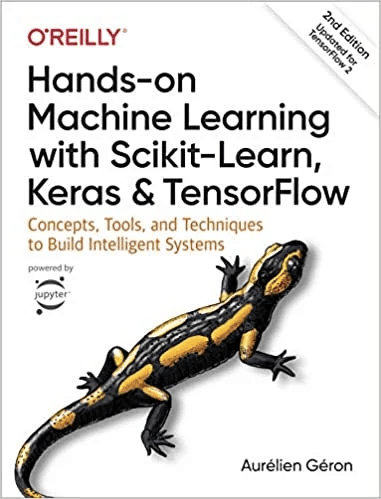
In this book, Aurelien Geron explains the basic techniques of machine learning based on popular Python tools and frameworks, such as scikit-learn, Keras and Tensorflow.
The book takes a practical approach to machine learning and avoids overwhelming you with the theory behind many machine learning models. It also explains more advanced concepts like deep learning and neural networks. It includes exercises in each chapter so you can easily implement the examples and learn from them.
9. The Hundred-Page Machine Learning Book by Andriy Burkov
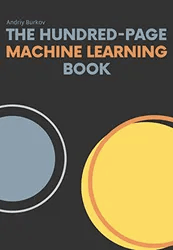
If you are just curious about machine learning and want to get started in the discipline without entering into technical details, or you’re a machine learning practitioner who wants to revisit core concepts, you should go for the hundred-page machine learning book.
Summarizing such a complex and extensive discipline in only 100 pages is a compelling effort in which Andriy Burkov succeeds. After reading it, you will be able to understand the different types of machine learning, core concepts in the design and deployment of predictive models, and what it takes to start a machine-learning-based application.
Another great resource to learn the theoretical foundations of machine learning is the Understanding Machine Learning course.
Best Data Visualization Books for Data Science
10. The Functional Art by Alberto Cairo
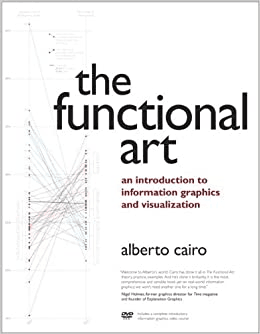
In The Functional Art, data journalist Alberto Cairo addresses the question of how to make the art behind data visualization functional. In other words, how to create beautiful visualizations without compromising usefulness and insights.
Departing from a detailed overview of best practices in data visualization, Cairo summarizes the peculiarities of our brain and how they influence the way we perceive and remember graphical information. After reading this book, how you approach data visualization will change forever.
11. Information Dashboard Design: Displaying Data for At-a-glance Monitoring by Stephen Few
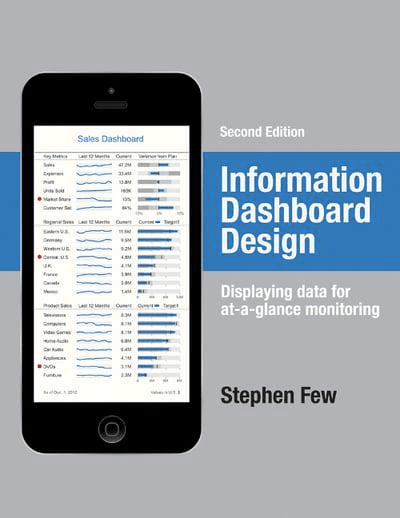
Dashboards provide one of the most effective ways to visualize data from different sources at a glance. They have become a core element in the infrastructure of data-driven companies, allowing data consumers and data practitioners alike to access data and KPIs simultaneously. However, as Stephen Few points out in his renowned book, dashboards are often designed in cumbersome and inefficient ways.
Information Dashboard Design is conceived as a practical guide to creating compelling dashboards. Departing from the principles of design theory and data visualization, the book goes on to present industry best practices for designing dashboards. It also provides numerous examples of moving from theory to practice seamlessly.
12. Effective Data Storytelling: How to Drive Change with Data, Narrative, and Visuals by Brent Dykes
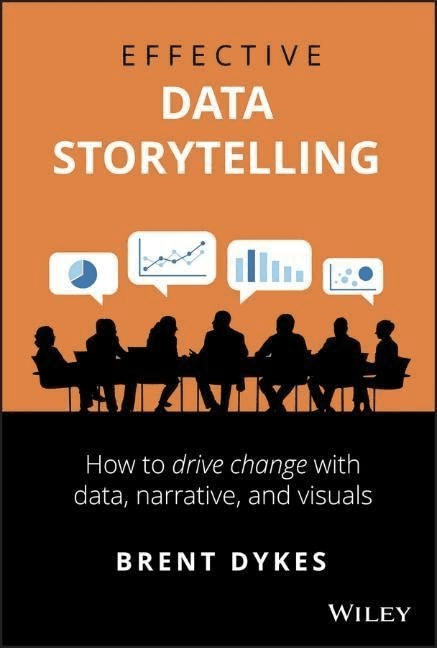
The ability to effectively communicate with data is a critical skill for anyone working in data science. Data visualization can help us in this task. However, if we want to ensure that our data insights translate into action, we need to take into consideration other resources and elements that influence communication. That’s the idea behind Effective Data Storytelling.
In his book, Brent Dykes—who appeared on the episode of the DataFramed podcast “Effective Data Storytelling: How To Turn Insights Into Actions”—Dykes developed a framework for data storytelling, an approach that combines three central elements: data, narrative, and visuals. To sum up, this book is a must-have resource for anyone who communicates regularly with data.
13. Information Graphics by Sandra Rendgen and Julius Wiedemann
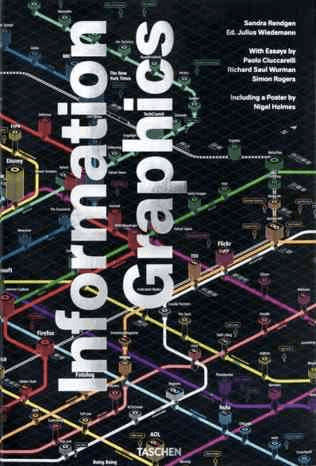
Information Graphics is a beautiful, brilliantly crafted book that explores the development of visual communication in the era of big. It contains a series of essays on the history of data visualization and 400 real examples of graphical projects spanning numerous domains in our society. Anyone interested in the history and practice of modern visual communication would find this useful.
14. Present Beyond Measure by Lea Pica
Present Beyond Measure is a comprehensive guide on data visualization that caters to a diverse audience, including data analysts, marketers, and more. Covering key aspects like eliminating data overwhelm, mastering slide design, and employing cinematic storytelling techniques, the book offers practical advice for crafting compelling data narratives and engaging presentations. With a focus on the PICA Protocol and Lea's proprietary Chart Detox™ Formula, it provides a concise yet thorough approach to clear data storytelling. Suitable for a broad range of professionals, from executives to consultants, this resource delivers valuable insights and tips for creating impactful data visualizations and confidently presenting them.
Bonus Data Science Books
15. Weapons of Math Destruction by Cathy O’Neill
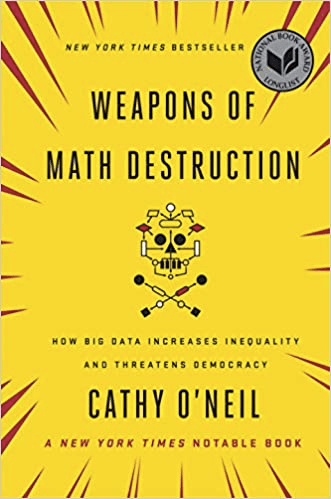
Published in 2016, Weapons of Math Destruction paved the way for a necessary debate about the ethical implications of big data. According to Cathy O’Neill, algorithms are perpetuating harmful biases. Illustrating these biases with real examples, O’Neill ends the book by arguing how transparency and algorithm audits will be necessary for a fairer future. Hear from Cathy O’Neil discussing her book on the DataFramed Podcast.
16. Everybody Lies: Big Data, New Data, and What the Internet Can Tell Us About Who We Really Are by Seth Stephens-Davidowitz
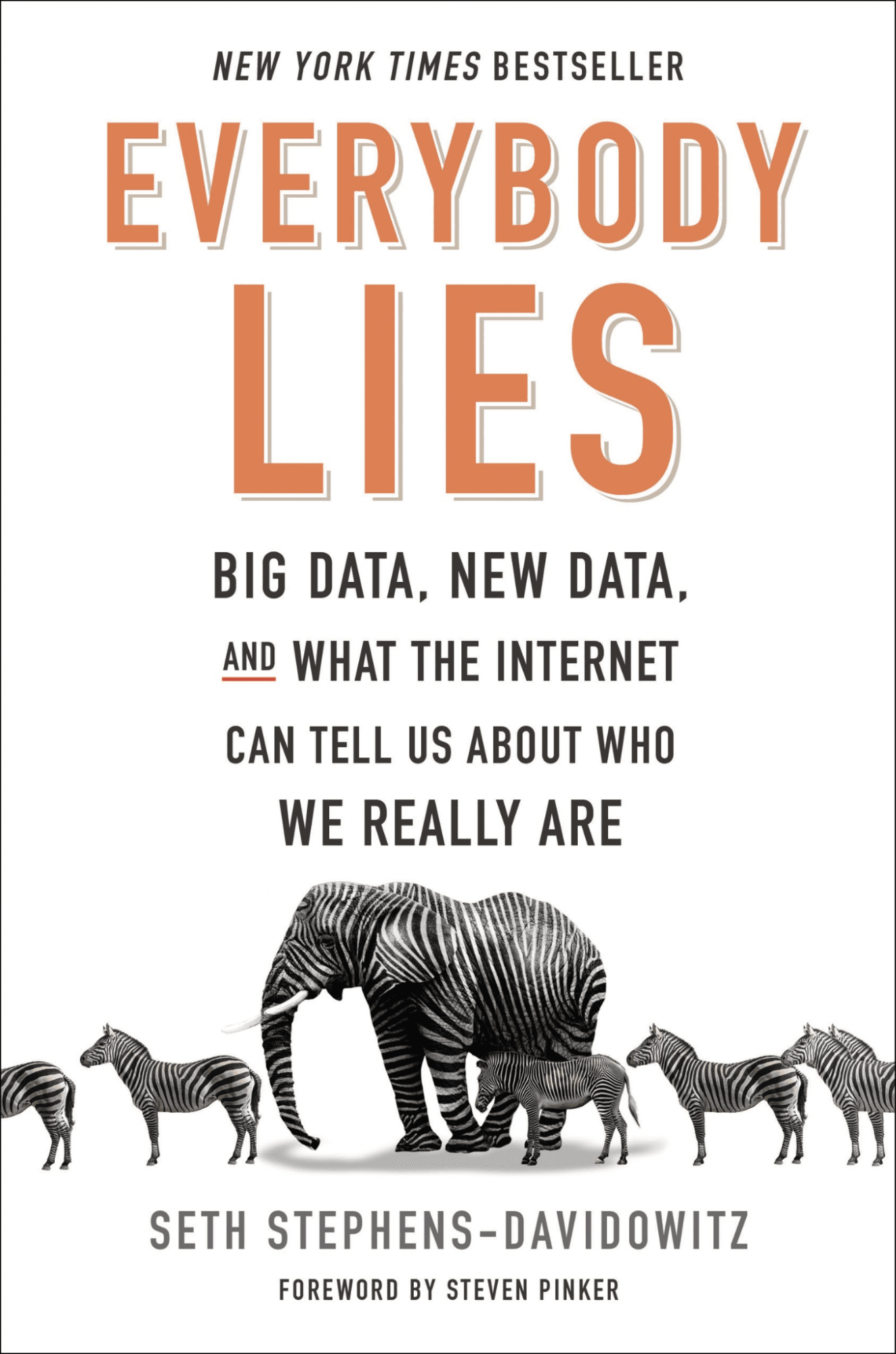
Search engines are one of the biggest drivers of big data. Every day, we create billions of terabytes of data by just typing queries in search engines. This information can reveal a lot about our behavior, prejudices, and fears. In the best-seller Everybody lies, Stephens-Davidowitz digs into Google search data and provides revealing answers to questions spanning economics, ethics, politics, race, gender, and more.
17. Algorithms of Oppression: How Search Engines Reinforce Racism by Dr. Safiya U. Noble
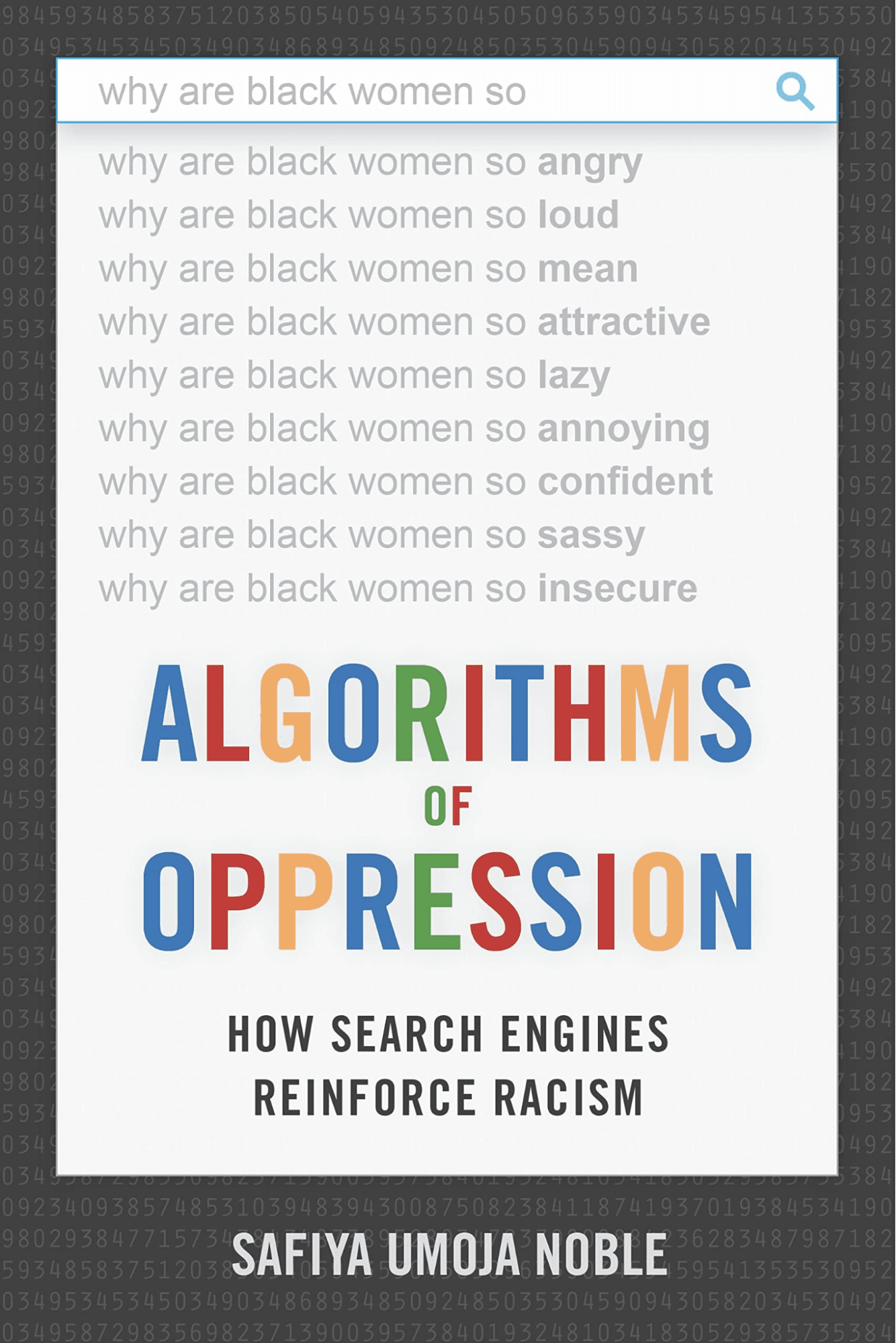
In Algorithms of Oppression, Safiya U. Noble deep dives into how search engines return biased results to queries. She argues that the combination of incentives in promoting certain results, coupled with the monopoly status of a relatively small number of internet search engines, has led to racist and sexist algorithms that perpetuate harmful stereotypes on the internet. This book provides an overview of the power data science can have in alleviating, and reinforcing racism.
18. 97 Things About Ethics Everyone in Data Science Should Know by Bill Franks
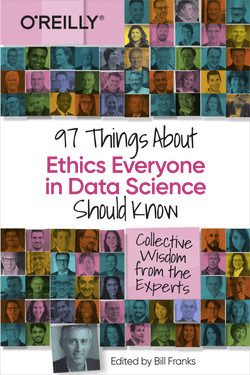
Most of the high-profile cases of real or perceived harmful impacts of data science aren’t driven by bad intent. Rather, they are normally driven by a lack of careful ethical review during the design and deployment process. The goal of 97 things about Ethics everyone in data science should know is to identify ethical best practices to integrate into the data analysis workflow. The book is based on the opinions of top data science practitioners.
19. Naked Statistics: Stripping the Dread from the Data by Charles Wheelan
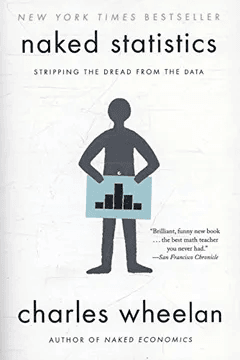
Readers will be delighted by this provocative and illustrating view on how statistics are used today by companies to manipulate our behavior. With a balanced mix of theory and real examples of good and, especially, bad practices, acclaimed author Charles Wheelan provides clues to understand our society better and makes the case for better statistical literacy.
20. Don't Trust Your Gut: Using Data to Get What You Really Want in Life by Seth Stephens-Davidowitz
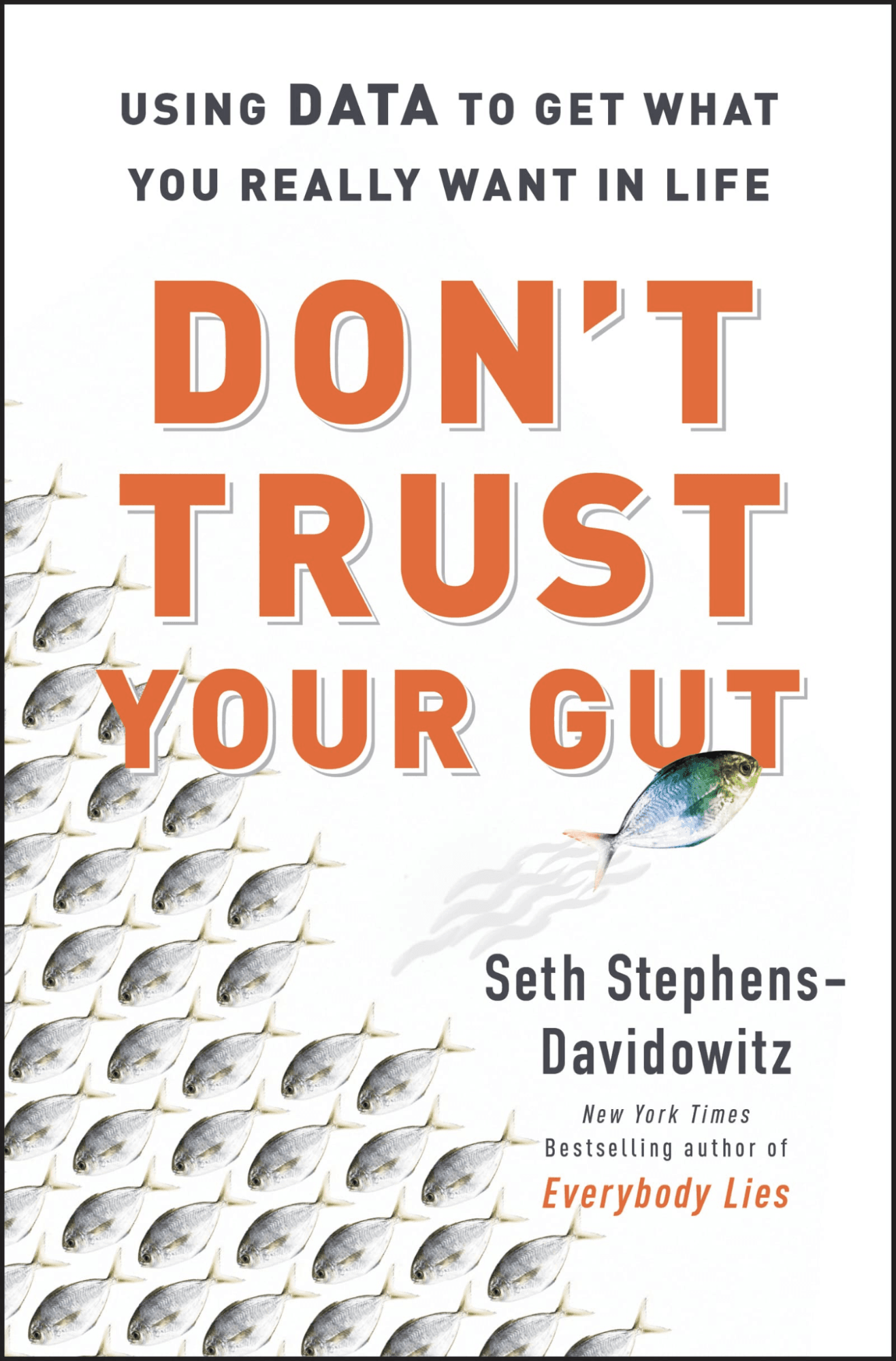
Most of books about big data tend to focus on the applications of data to support business decision-making, overseeing the fact that data can also help in our daily lives. Don’t trust your gut to address this. It provides a practical guide on how data can work better than intuition to support the big and small choices we all have to make throughout our lives.
21. Introduction to Natural Language Processing By Jacob Eisenstein
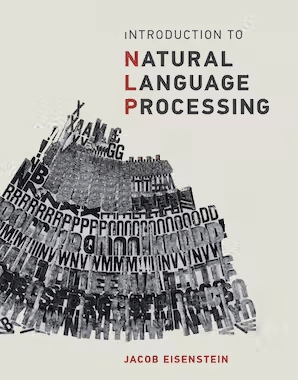
If you already have basic knowledge of coding and statistics and want to move your career toward the field of natural language processing, this book is for you. Introduction to Natural Language Processing by Jacob Einstein provides a technical perspective on NLP, linking contemporary machine learning techniques with the field’s linguistic and computational foundations.
22. Big Data in Practice: How 45 Successful Companies Used Big Data Analytics to Deliver Extraordinary Results by Bernard Marr
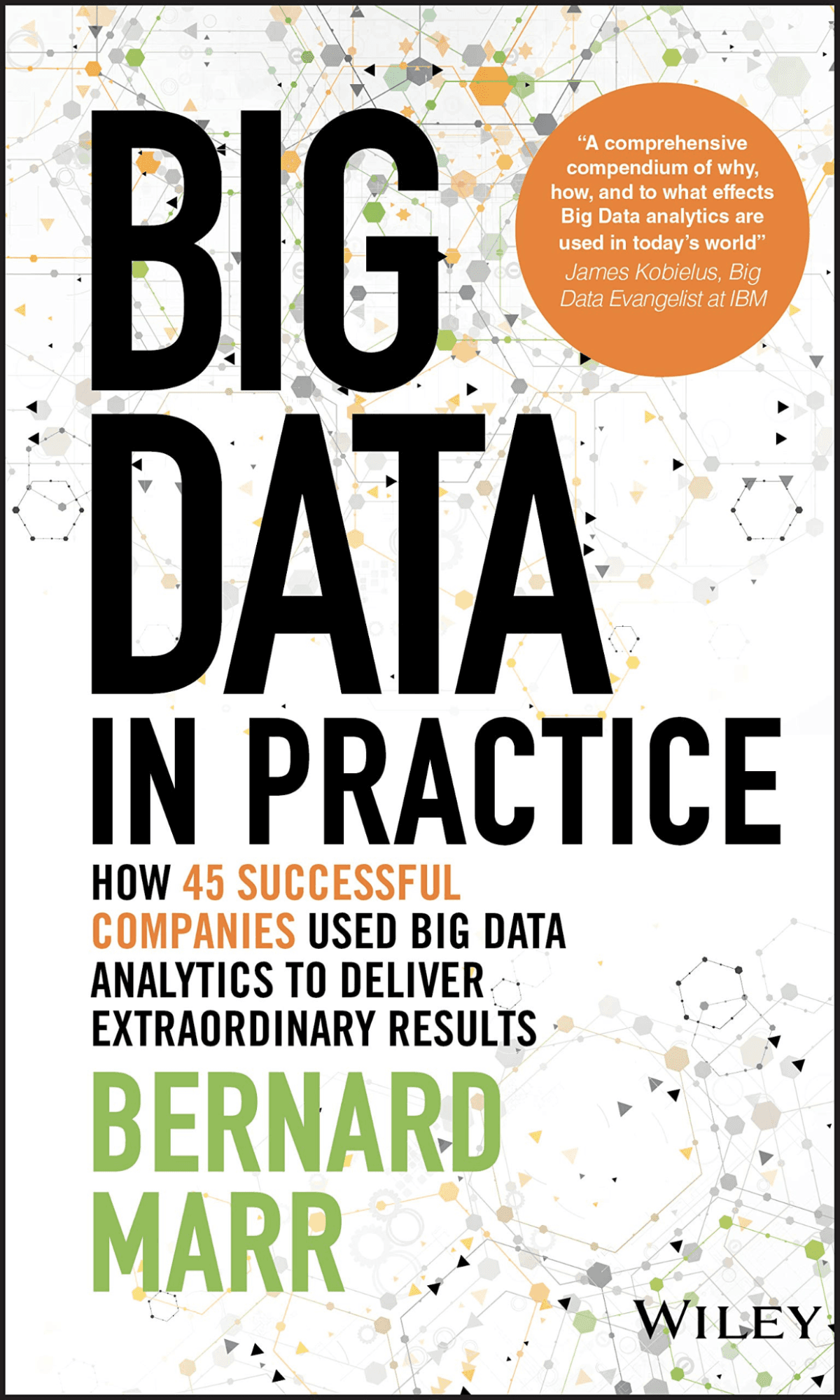
The title speaks for itself. The best-selling author Bernard Marr has written this unique and practical book on how 45 of the most renowned companies are using big data in their day-to-day operations. He provides great inspiration for other organizations looking to use data effectively and uncovers some of the pitfalls to avoid in the implementation of these solutions.
23. Big Data: Understanding How Data Powers Big Business by Bill Schmarzo
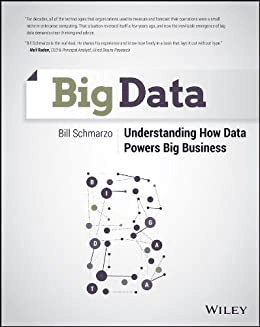
Written by one of the most prominent experts in Big Data, Big Data: Understanding How Data Powers Big Business gives us a comprehensive overview of what data is and how it is used. The book is full of practical tips, ideas, techniques, methodologies, and real examples that provide an overview of how big data tools and technologies can accelerate business value.
Learn More About Data Science
We hope you found this list insightful. Books are a great resource to learn data science, either to get started on a new topic or to become an expert. But if you don’t have time to read a book, we still have you covered. Check out the following resources and get started today!
- A large course catalog with +380 data science courses covering programming, statistics, visualization, and more.
- Subscribe to our blog for the latest insights
- Subscribe to the DataFramed podcast
- Check out our Data Science Cheat sheets
Related courses
Course
Introduction to R
Course
Understanding Data Science
The Complete Docker Certification (DCA) Guide for 2024
Mastering API Design: Essential Strategies for Developing High-Performance APIs
Javeria Rahim
11 min
Data Science in Finance: Unlocking New Potentials in Financial Markets
5 Common Data Science Challenges and Effective Solutions
DataCamp Team
8 min
A Data Science Roadmap for 2024
Mark Graus
10 min